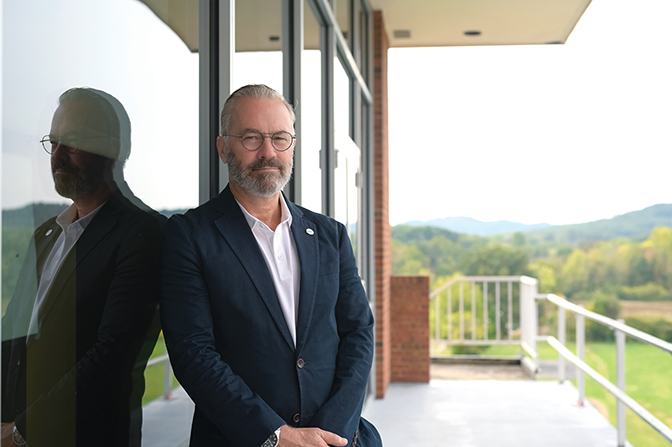A Message from the Vice President for Alumni, Communications and Philanthropy
I’m sure you notice all the frenzy over very large lottery payouts in our country. While the odds are stacked against winning, it doesn’t seem to hinder ticket sales.
For students seeking a four-year degree from the lowest income quartile in the country, the odds are stacked against them; completion rates have remained quite steady at 25 percent since 1970. For wealthy students, the increase in completion has gone from around 50 percent in 1970 to nearly 95 percent. It proves to me that talent is nearly universal, but opportunity is not.
Educational access and opportunity are the best ways to change the trajectory of a person’s life, but the inequity in higher educational access and graduation is alarming. I’m proud that Berea has long sought to do something about this, intentionally reserving spaces for students who are worth much more than the tuition they can afford. I’m glad that there is a Berea College, but our country and world need many more Bereas.
Educational opportunity doesn’t just impact the student who walks across the Berea commencement platform, however. It impacts that graduate’s descendants, too. My paternal grandfather, for example, had to leave school in the third grade after his father’s death from typhoid so that he could go to the field and help his sharecropping mother to bring in the crop. He was never able to go back to school, but he paved the way for my father to earn a master’s and me a doctoral degree.
It’s un-telling the number of people whose own trajectories have been forever improved and broadened by a Berea ancestor gaining a degree. I recall one person learning more about her own father, who grew up with seven siblings in a dirt-floored home in a Harlan County, Kentucky, coal camp, now vanished from the landscape. A teacher of his recommended he attend Berea Academy to complete high school and later to attend Berea College, where he graduated in 1938. He went on to become a surgeon.
This Berea “descendant” said Berea College only became known to her more deeply after she visited campus with her husband and son after her father’s death at 98. Strolling along campus and perusing the archives, she says “charted the map of the man Berea helped make and evoked forgotten tales of his time there. In the handwritten columns of his academic transcript was the story of the opportunities my father was given at Berea College.”
They toured Broomcraft, “where my father got to work with his hands, his favorite thing to do. ‘People become surgeons because they like to work with their hands,’” her father was fond of saying.
On that visit, her son recognized facets of himself in his grandfather and proudly said, “I am that guy.”
This visit was revelatory, conveying how Berea provided what their father received from his alma mater: “the opportunity to make a life for himself and his future family.” His daughter said, “We never would have existed without Berea College.”
When you invest in lives of today and tomorrow, your investment continues to give limitless returns measured in lives lived well. Thank you for those investments.


